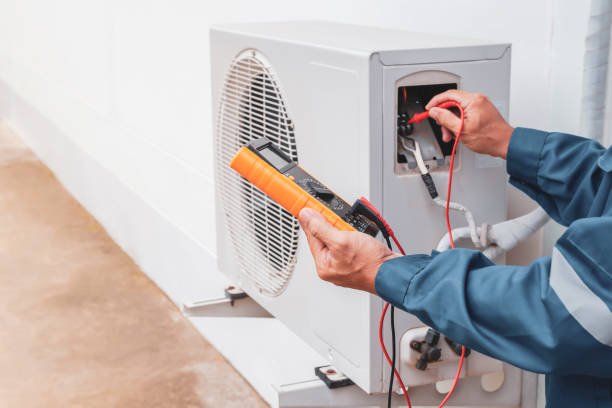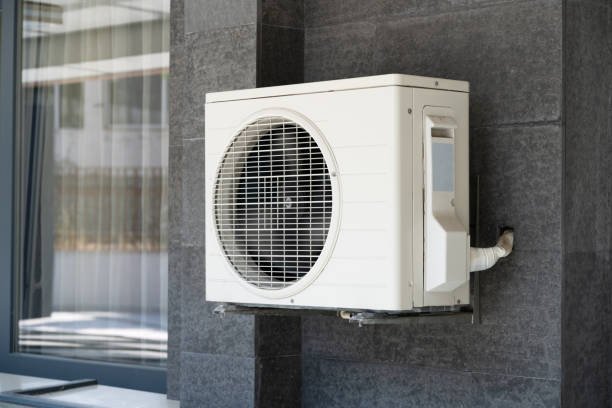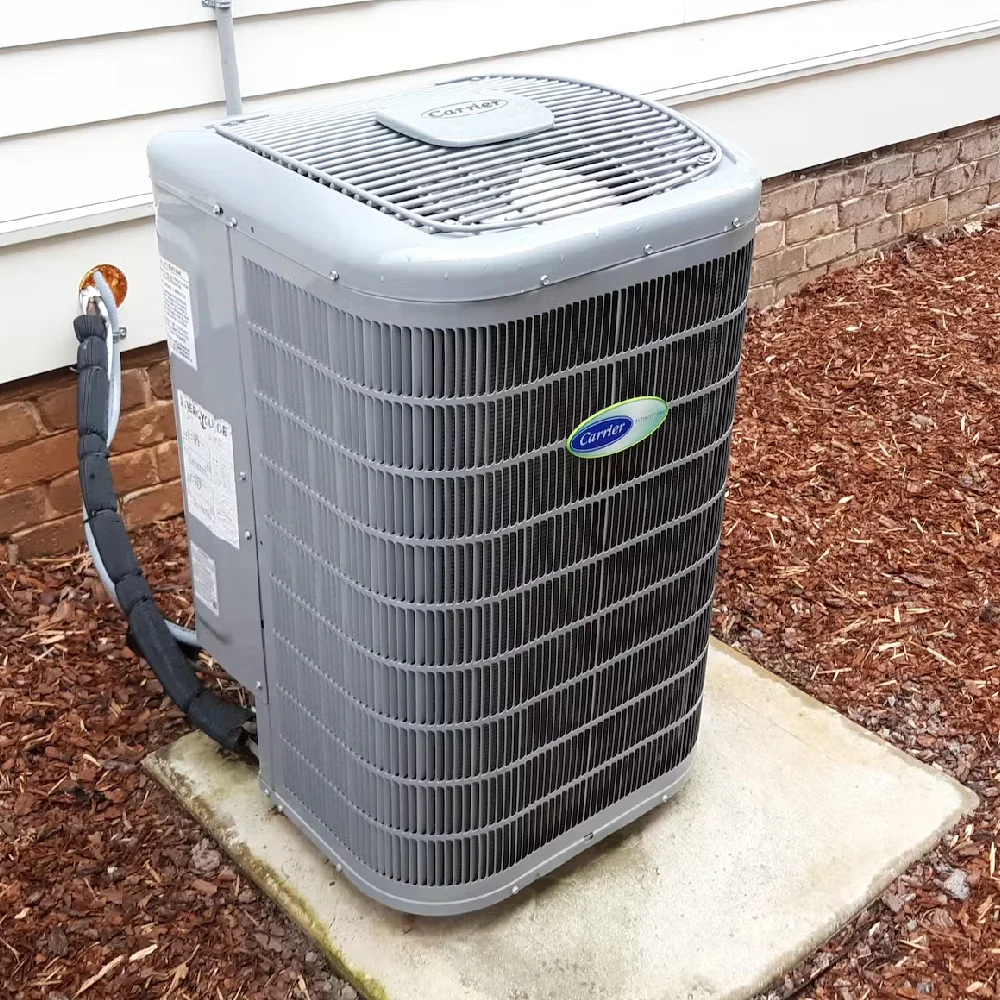When it comes to home comfort, few systems are ac repair near me as vital as your HVAC (Heating, Ventilation, and Air Conditioning) system. But how do you know when it's time to repair or replace it? Enter the $5000 rule—a concept that helps homeowners make informed decisions about their HVAC systems. Let's dive deep into understanding this rule and how it can save you money in the long run.
Understanding the $5000 Rule for Your HVAC System
The $5000 rule is a guideline that helps homeowners evaluate whether to repair or replace their HVAC system based on its age and repair costs. Simply put, if the total cost of repairs in a year exceeds 50% of the price of a new system—and if your system is over 10 years old—it's often more cost-effective to replace it rather than continue investing in repairs. This rule can be crucial when you're faced with unexpected breakdowns and costly air conditioning repair bills.
Why Is This Rule Important?
Making decisions regarding your HVAC system can be daunting. With many factors at play—including efficiency, lifespan, and technology—this rule simplifies the process. It gives you a clear framework to assess your options without getting overwhelmed by technical jargon or marketing tactics.
How Does the $5000 Rule Work?
Assess System Age: Determine how old your HVAC unit is. Most systems last around 15 years. Calculate Repair Costs: Keep track of any repair expenses over the past year. Compare Costs: If repairs exceed half the replacement cost (around $2500 in this case), consider replacing your unit.This straightforward approach helps homeowners weigh their options based on real financial data rather than assumptions or guesswork.
Factors Influencing Your Decision
- System Efficiency: Older systems tend to be less energy-efficient, leading to higher utility bills. Reliability: Frequent breakdowns can indicate that your system is nearing the end of its lifecycle. Comfort Levels: Newer models often provide better temperature control and air quality.
By understanding these factors, you can make an informed decision about whether to invest in repairs or seek out a new air conditioner installation.
Recognizing Signs That You Need HVAC Services
Frequent Breakdowns
If you're constantly searching for "AC repair near me," it's a clear sign that your system might need replacing. Frequent issues not only disrupt comfort but also add up financially over time.

Skyrocketing Energy Bills
Have you noticed an unexpected spike in your energy bill? It could be due to inefficient heating or cooling from an aging unit. Upgrading to a more efficient model can help save on monthly costs.
Poor Indoor Air Quality
Dust accumulation may signal that duct cleaning is overdue or that your system is struggling to function effectively. Improved indoor air quality can significantly enhance comfort and health.
Strange Noises and Odors
Unusual sounds like banging or grinding or odd smells could indicate serious problems within your unit requiring immediate attention from HVAC services professionals.

Evaluating Repair vs Replacement Costs
Initial Repair Costs vs Long-Term Investment
When considering whether to fix or replace an HVAC system, it's essential to factor in both immediate costs and potential long-term savings:
| Repair Type | Cost Range | Lifespan Impact | |---------------------|---------------|-----------------------| | Minor Repairs | $100 - $300 | Short-term solution | | Major Repairs | $1000 - $2000 | May extend life by 1-3 years | | Complete Replacement | $4000 - $8000 | New warranty & efficiency |
It’s evident from this table that while repairs may seem cheaper upfront, they can lead to frequent future expenses if the system is outdated.
Considering Seasonal Changes
During peak seasons—summer heatwaves or winter chills—demand for HVAC services escalates. This can affect both pricing and availability for service calls. Planning ahead allows you better options when evaluating repairs versus replacements.
Long-Term Benefits of Replacing Your System
Increased Energy Efficiency
Modern units are designed with energy efficiency in mind—leading to lower utility bills and reduced environmental impact—a win-win situation!
Improved Comfort Levels
Newer systems provide consistent temperatures throughout your home compared to older models known for hot/cold spots due to wear-and-tear issues.
Enhanced Technological Features
Smart thermostats and advanced filtration systems available with new installations contribute significantly toward modern living standards by automatically adjusting settings based on lifestyle habits.
Common Myths About HVAC Systems Debunked
Myth: "All Repairs Are Worth It"
While some repairs are worth it, others may not be economically viable given age/condition factors; always consult professionals before jumping into conclusions!

Myth: "Duct Cleaning Isn't Necessary"
Duct cleaning improves indoor air quality drastically—if you've got dust bunnies appearing out of nowhere, it's likely time for this important service!
FAQs
What does “air conditioning repair” typically include?
Air conditioning repair usually encompasses diagnosing issues like refrigerant leaks, compressor failures, electrical problems, and routine maintenance tasks such as filter changes.
How often should I clean my ducts?
It's recommended to have duct cleaning performed every three to five years depending on factors such as pets allergies, smoking indoors etc., which might necessitate more frequent attention!
What’s involved in “HVAC services”?
HVAC services cover all aspects related—from installation/repair/replacement of heating/cooling units down through ventilation improvements ensuring optimal performance across households/businesses alike!
When should I consider AC replacement?
If repairs exceed 50% of replacement costs under normal circumstances (per our earlier discussion), begin researching newer models capable meeting current needs efficiently without compromising comfort levels!
Are there tax incentives available for energy-efficient upgrades?
Yes! Tax credits may apply depending upon local/state regulations promoting sustainable practices encouraging homeowners towards adopting greener technologies within residences enhancing overall investments long term!
Conclusion
Understanding the $5000 rule for your HVAC system provides clarity amidst complex decisions regarding maintenance versus replacement strategies tailored around budgetary constraints while ensuring optimal comfort levels throughout seasons ahead! Always consult certified professionals when uncertain; they’ll guide you toward making smart choices based upon personalized analysis taking into account both immediate needs alongside future aspirations concerning home environments being both inviting & functional!
With proper maintenance schedules set forth alongside regular check-ups conducted periodically by trusted technicians familiarized with industry trends—homeowners stand equipped facing challenges head-on securing peace-of-mind knowing warmth/coolness awaits just around corner no matter what Mother Nature throws their way!